“I walk in the door and my job is to put words on paper. Although there are many things to be anxious about in the world, I tend not to worry here. It has been a wonderful place to focus on ideas.”
If it sounds as if Mary Dudziak, current President’s Humanities Fellow at the Fox Center for Humanistic Inquiry, deeply appreciates the time and space the fellowship affords to work on her current book project, she is not the first. Dudziak, Asa Griggs Candler Professor of Law, joins a growing retinue of faculty who enthusiastically speak to the value the fellowship confers not just for their research but for amplifying humanities projects across Emory and beyond.
Here is how the program works. The President’s Humanities Fellowship is available to tenured Emory faculty members in the professional schools and Oxford College for an academic year of study and residence at the Fox Center. The purpose of the program is to stimulate and support humanistic research by providing faculty with the necessary time, space and other resources.
“The president’s endorsement, evident in the fellowship’s name, shows support at the highest level of administration for the humanities and for the Fox Center as an interdisciplinary center where the humanities are cultivated,” says Fox Center Director Walter S. Melion. The Asa Griggs Candler Professor of Art History, Melion became director of the center in 2018 with a pledge to build on the center’s strengths in humanities scholarship while making its work more accessible to the campus community and public.
The place to ponder
“You can advance some research projects while teaching. But for me, the big thinking doesn’t take place unless I am conducting a related seminar. I do historically oriented seminars in the law school, but I don’t have my seminars full of graduate students, so critical engagement with historiography can’t be the focus,” notes Dudziak. At the Fox Center, Dudziak has access to postdocs, graduate students and Senior Fellows from Emory College of Arts and Sciences. The atmosphere is one in which stimulating conversations take place in conference rooms and hallways. Even better, when needed, there is a door to close and be lost in thought. “Sometimes you just need to ponder and say ‘I am here in my argument; what is the next step?’” says Dudziak.
She is at work on the book “Going to War: An American History,” which will make the case that war is so baked into the cultural fabric that Americans have lost their political engagement with it, rendering war largely invisible. Dudziak will build on her latest book, “War Time: An Idea, Its History, Its Consequences,” which showed that there was almost no moment in the 20th century when America wasn’t at war.
Her project, which centers on the culture of war death, was originally focused on the 20th century but became more expansive when she asked herself, “How are the dead narrative characters in the book?” The question made her realize, “This is what Americans have lost. They have lost what Europeans and Asians had in World War II. They have lost what Americans had in the Civil War — the experience of what war is like where you live.” The book opens with a chapter on the Battle of Antietam, often called the bloodiest day in American history, with a combined tally of 23,000 dead, wounded or missing after 12 hours of combat on Sept. 17, 1862.
“Americans don’t want to be bothered by war. The only groups deeply affected tend to be soldiers and their families. Even then, because we are headed toward ‘robot war,’ with its reliance on drones, fighters can often go home to their families. This is micro-war, reliant on machines, with fewer and fewer American bodies in harm’s way,” she continues.
Dudziak is indebted to the work of another female war historian, the celebrated Vietnam war historian Marilyn Young, who passed away in 2017. The two were the third and fourth female presidents of the 55-year-old Society for Historians of American Foreign Relations — Young in 2011 and Dudziak in 2017. Young encouraged Dudziak to write “War Time,” believing that its message — that perpetual wartime can end up justifying actions such as torture and detention without trial — needed to reach a worldwide audience, which it has.
The Price is right
Looking back from Dudziak’s current tenure, the person who set things moving toward what would become the President’s Humanities Fellowship program was Polly Price 86C 86G, Asa Griggs Candler Professor of Law and professor of global health. Having earned her master’s degree in history at Emory before completing a JD at Harvard Law School, Price had focused much of her writing on legal history, which is necessarily a cross-disciplinary endeavor.
In 2007–08, Price sought time away from teaching to focus on her second book. She applied to the Fox Center’s Senior Fellows program but learned that it was limited to tenured members of the Emory College of Arts and Sciences faculty. The provost and law dean at the time collaborated to create a funding arrangement that would enable Price to remain on salary and use a semester of sabbatical consistent with the other Fellows in the program that year. Thus was the door opened to the participation of the professional schools and Oxford College through what would become the President’s Humanities Fellows program.
“The benefit to me was huge — I completed 'Judge Richard S. Arnold: A Legacy of Justice on the Federal Bench,' which features a foreword by Justice Ruth Bader Ginsburg. I remember celebrating with my colleagues in the program when I received news that Justice Ginsburg had agreed to provide it. I also remember cheering a little too loudly following a telephone conversation with Justice Sandra Day O’Connor about my book research,” says Price.
Price especially credits Harvey Klehr, Andrew W. Mellon Professor Emeritus of Politics and History, who was then serving as a Senior Fellow from the Department of Political Science. According to Price, “The political science perspective was newer to me then and very helpful to my project. Overall, the time to devote to my project, and the exposure to different humanities disciplines from conversations with my colleagues, were invaluable.”
Getting in the spirit
Carol Newsom, Charles Howard Candler Professor Emerita of Old Testament at Candler School of Theology, was a 2010-11 President’s Humanities Fellow whose work at the center led to “The Spirit within Me: Self and Agency in Ancient Israel and Second Temple Judaism.” As she notes, “In the humanities, fellowships are few and hard to come by,” especially when — as was the case for Newsom — she was just beginning to work through what would become “The Spirit within Me.”
“I look back on it as one of my most wonderful oasis times,” says Newsom, who not only had the time to think through the project but also recalls programming that got the juices flowing — common discussions around themes and issues that were pertinent across the various disciplines of the humanities.
Each year, the President’s Humanities Fellow trades sparks of imagination with Senior Fellows, a variety of Postdoctoral Fellows (the center sponsors a Postdoctoral Fellowship in Poetics as well as one- and two-year postdoctoral fellowships), Dissertation Completion Fellows and Undergraduate Fellows. “In the spring, when the dissertation students and postdocs were interviewing for positions elsewhere, we held mock interviews for them,” says Newsom. She also served on the selection committee for postdocs and describes Emory’s program as “very desirable, with a high placement rate for those who do their postdocs here.”
Finding “her people”
In 2021-22, Kylie Smith was the first President’s Humanities Fellow from the Nell Hodgson Woodruff School of Nursing. Smith is associate professor, Andrew W. Mellon Faculty Fellow for Nursing and the Humanities and associate faculty in the Department of History.
“I had the Fox Center on my radar from the time I arrived at Emory in 2015. Being a humanist in a professional school made it important that I find my people across Emory,” says Smith.
The project Smith pursued at the Fox Center is titled “Jim Crow in the Asylum: Psychiatry and Civil Rights in the American South.” Like Dudziak, Smith has completed much of the archival work and needed a place to “sit down and think about how I was going to pull it together.” The fellowship, she reflects, “brought me into a building that smelled like old books. I received a level of critique there that I really needed. It was wonderful to have people to share ideas with when my project was at this formative stage.”
The book analyzes the practices and politics of segregation in psychiatric institutions in Georgia, Alabama and Mississippi in the 1960s and 1970s. It measures the impact of the Civil Rights Act of 1964 and Medicare and Medicaid in 1965 on the operation of state institutions and demonstrates that different approaches to racial segregation had varied consequences for services in these states.
Smith’s book will publish in both paper and digital formats, the latter of which will allow considerable bonus content, including photos, interviews, story maps and data visualization. The open-access aspect is crucial. “The book is an act of accountability. It needs to be available to the people whose stories of trauma and terror I am telling,” she stresses.
Ending her fellowship year at the Fox Center was difficult, Smith admits. “Though I love the work I do at the nursing school, it is hard being the only one of my kind. It fed my soul being at the Fox Center and I did not want to give up that feeling,” she says.
So, using the Fox Center as her model for collaboration, Smith worked with Linda McCauley, dean of the nursing school, to come up with a bold idea: The Center for Health Care History and Policy. “Knowing that there are already people doing this work at Emory, I want it to be a collaborative hub for people working at the intersection of health care history and policy,” says Smith. The center will have three arms: research, education and service. Its launch will take place on March 2, 2023 in conjunction with the Southern Association for the History of Medicine and Science conference, which will be hosted at Emory from March 2-4.
All Fellows do a public-facing event. In September 2023, Smith will be doing a four-week seminar, in conjunction with Georgia Humanities, on Central State Hospital in Milledgeville, Georgia. Emory has some archival material related to Central State Hospital, which is one of the subjects of her book. “A facility like the one in Milledgeville looms very large in the history of Georgia. How do you deal with the contested memories of a place like that? We will squarely address these issues in the seminar,” says Smith.
Of the many things the Fellows do well . . .
As Melion assesses the strengths of the President’s Humanities Fellows, he stresses “that these are scholars who know how to convert their data into stories. They know how to narrativize their work in a way that seizes the broader public’s attention.”
Dudziak’s book will be part of Oxford University Press’ trade line, which means that “it will be academically rigorous, but the writing will not be exclusive to the academy.” She continues, “My concern is that the American public has lost any interest in their own wars, so I am highlighting this as a moral as well as political and military problem. The general public is very much a target audience for me. I hope that, by the end of the book, they will share some concerns that I have.”
Asked how she is approaching these same issues of accessibility, Smith mentioned the care she takes to be transparent about her process with readers. She writes, for instance, in the “I” so that “people are on the journey with me.” In her preface, she is open about her politics and “clear about the health disparities that exist in the South and the fact that I am making a direct link between past practices and current.”
Mary L. Dudziak, Asa Griggs Candler Professor of Law, Emory University School of Law Project at the Fox Center: She is currently writing a history of the decline of democratic restraints on U.S war power: “Going to War: An American History” (under contract, Oxford University Press). Kylie Smith, associate professor, the Mellon Faculty Fellow for Nursing and the Humanities in the Nell Hodgson Woodruff School of Nursing andassociate faculty in the Department of History Project at the Fox Center: Her new book titled “Jim Crow in the Asylum: Psychiatry and Civil Rights in the American South” will be published by University of North Carolina Press and is supported by a grant from the National Library of Medicine. Seminar through the Fox Center: In September 2023, Smith will be doing a full week’s seminar, in association with Georgia Humanities, on Central State Hospital in Milledgeville, Georgia. Susan Youngblood Ashmore, Charles Howard Candler Professor of History at Oxford College Erin C. Tarver, Associate Professor of Philosophy at Oxford College Jennifer R. Ayres, Associate Professor of Religious Education at Candler School of Theology and in the Graduate Division of Religion; Director of the Doctor of Ministry Program Project at the Fox Center: Ayres’ fellowship year yielded two articles on ecological religious and theological education, as well as most of the manuscript for her third book, “Inhabitance: Ecological Religious Education” (2019). Seminar through the Fox Center: During the 2018-19 academic year, Ayres offered a Great Works seminar on the person and work of marine biologist, writer and conservationist Rachel Carson: “The Sense of Wonder: Love and Beauty in the Anthropocene.” Steve Kraftchick, Professor Emeritus in the Practice of New Testament Interpretation at Candler School of Theology and in the Graduate Division of Religion Project at the Fox Center: Kraftchick explored philosophical and ethical questions, both individual and communal, that arise when we reflect on our natures as techno-human beings. As we continue to develop new forms of technological prosthetics, thought processing and medical devices, the boundary between therapy and enhancement becomes increasingly blurred. Through the fellowship year, Kraftchick looked at the ways in which we have constructed that boundary and why we did so by considering religious notions of the human person alongside other philosophical notions of posthumanism. Seminar through the Fox Center: Moving the above questions into the realm of literature, Kraftchick led the seminar “Mary Shelley’s ‘Frankenstein; or, the Modern Prometheus.’” Henry Bayerle, Associate Professor of Classics at Oxford College Project at the Fox Center: Bayerle produced an English translation of the Chronicon Novaliciense, an 11th-century monastic chronicle written in northern Italy. Seminar through the Fox Center: His seminar on Virgil’s Aeneid inspired him to apply successfully for a grant from the Dialogues on the Experience of War program of the National Endowment for the Humanities. With the support of this grant, Bayerle is currently directing a program in which groups of veterans meet in multiple venues (including the Fox Center) to read Virgil’s Aeneid and discuss their experiences of military service.President’s Humanities Fellows
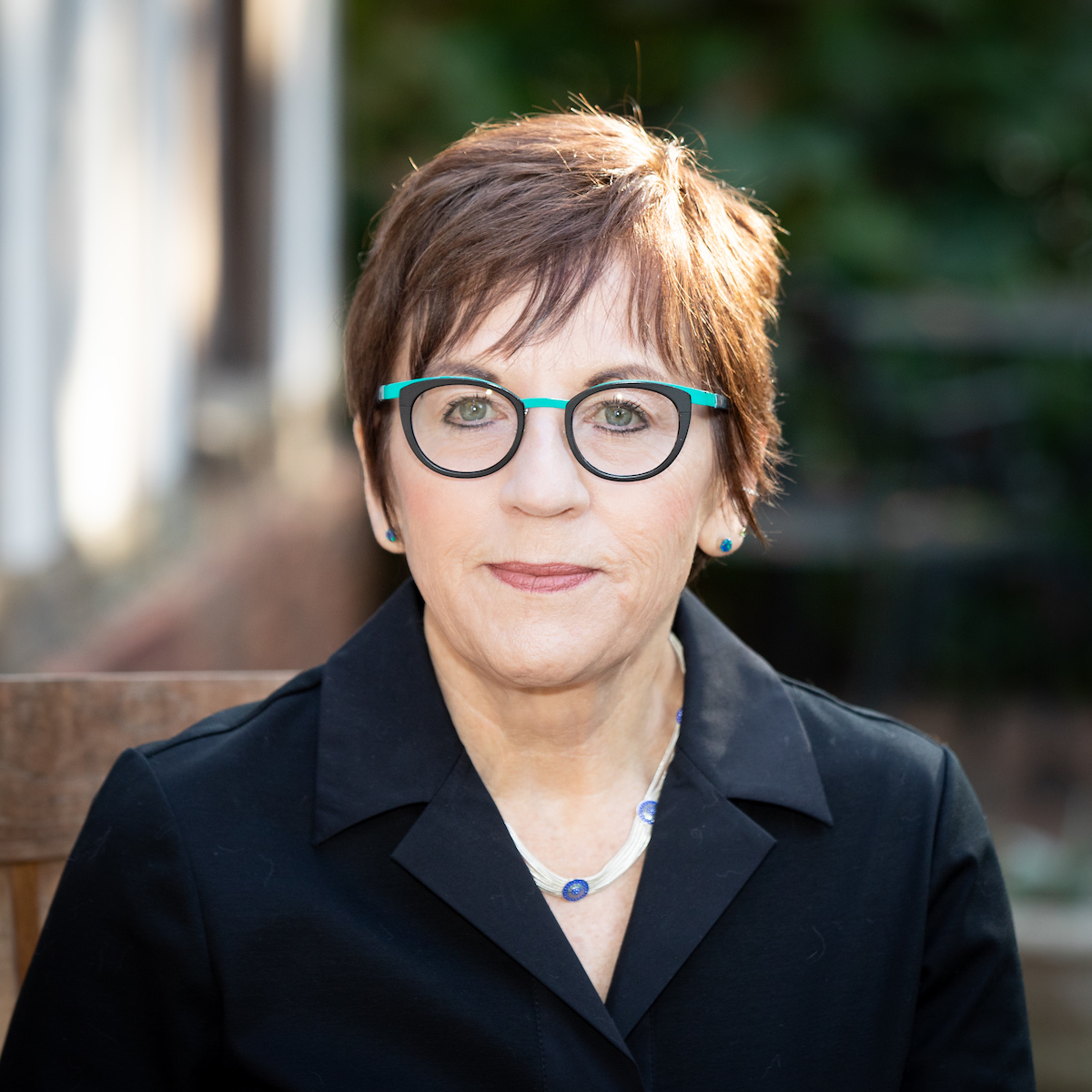
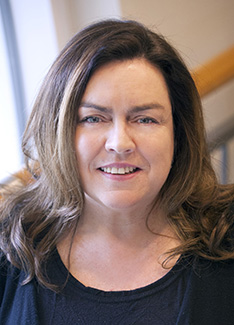
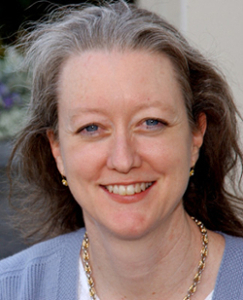
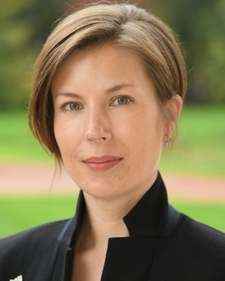
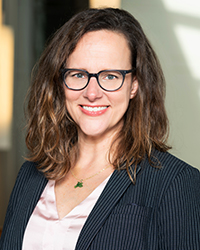
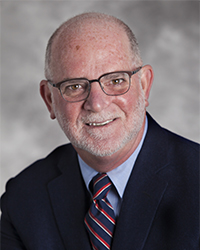
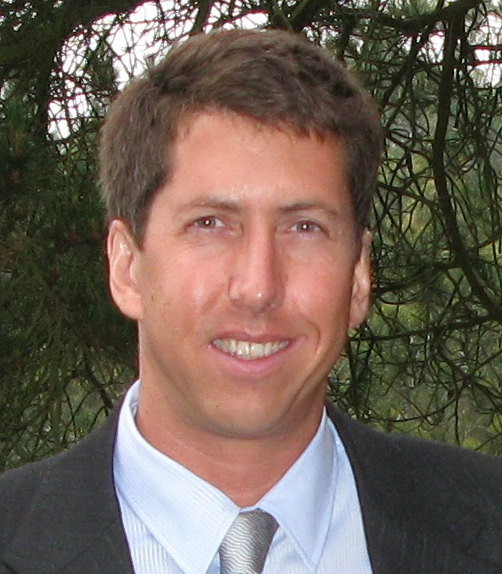
Faculty: picture yourself here
Applications for the President’s Humanities Fellows program will be accepted through Jan. 19, 2023.
As she writes her book on war, Dudziak is grateful for the Fox Center’s peacefulness.
“There is nothing like having a dedicated writing space. Having a space where you are resident with other writers creates a magical environment,” she says.

